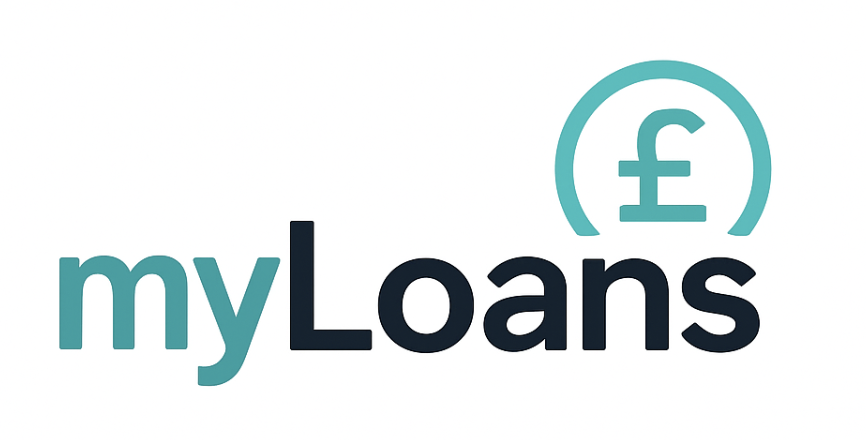Table of Contents
Introduction: The Growing Need for Education Loans Beyond Student Finance
In the UK, traditional student loans are managed by Student Finance England (or equivalents in Wales, Scotland, and Northern Ireland). These cover undergraduate degrees and some postgraduate courses. But not all education is funded this way.
From professional qualifications (ACCA, CIPD, CIMA) to postgraduate diplomas, vocational training, bootcamps, and private colleges, thousands of learners each year must self-fund — often at significant cost.
That’s where education loans come in. These are personal loans (sometimes specialist products) used to spread the cost of tuition, books, and living expenses. This guide covers everything you need to know about education loans in the UK in 2025: types, lenders, pros and cons, and smarter alternatives.
What Are Education Loans?
Education loans are unsecured personal loans used to pay for study-related expenses. Unlike government student finance, they:
-
Are offered by banks, online lenders, and sometimes directly by institutions.
-
Require a credit check and affordability assessment.
-
Come with fixed interest rates and repayment terms.
They can fund:
-
Tuition fees for private or overseas study
-
Professional courses (law, accountancy, HR, IT certifications)
-
Postgraduate study not covered by Student Finance
-
Short-term vocational training or bootcamps
-
Accommodation, books, laptops, or living costs
Education Loans vs Student Loans
| Feature | Education Loan | Government Student Loan |
|---|---|---|
| Eligibility | Based on credit score & income | Based on residency, age, course type |
| Repayment | Fixed monthly instalments | Income-contingent (start paying after earning £25k+) |
| APR | 6%–20% typical | RPI + 0–3% (varies annually) |
| Flexibility | Any course or provider | Only approved UK universities/courses |
| Borrowing Limit | £1,000–£25,000 | Covers tuition + some maintenance |
Who Offers Education Loans in the UK?
-
High Street Banks
-
Barclays, Lloyds, TSB, Santander, M&S, Tesco, etc.
-
Offer standard personal loans usable for education.
-
-
Online Lenders
-
Zopa, Lendable, Likely Loans.
-
Fast decisions, funds within 24 hours.
-
-
Credit Unions
-
Smaller amounts, often more affordable than commercial banks.
-
-
Specialist Student Finance Providers
-
Prodigy Finance, Future Finance (private student finance).
-
Designed for postgraduate/overseas students.
-
Typical Loan Amounts and Rates
-
Loan sizes: £1,000–£25,000 unsecured (more if secured).
-
Repayment terms: 1–7 years (sometimes 10+ for postgraduate-specific loans).
-
Rates:
-
Excellent credit: 6%–9% APR
-
Average credit: 10%–20% APR
-
Poor credit: 20%–49% APR
-
Pros and Cons of Education Loans
Pros
-
Access to training/qualifications when Student Finance won’t help
-
Fixed monthly repayments aid budgeting
-
Can fund career-changing courses or certifications
-
May increase earning power long-term
Cons
-
Interest adds significant cost
-
Repayments start immediately, not after graduation
-
Bad credit = higher APRs
-
Risk if course doesn’t lead to expected career/earnings boost
Alternatives to Education Loans
-
Government student loans: For undergrads and many postgrads.
-
Employer sponsorship: Many firms fund professional training.
-
Scholarships & bursaries: Universities and professional bodies offer grants.
-
0% credit cards: For smaller course fees (repay before interest kicks in).
-
Savings: Cheapest, safest option.
Worked Examples
Example 1 – Professional Qualification (ACCA)
-
Cost: £4,000 over 2 years
-
Education loan: £4,000 at 9.9% APR over 3 years = ~£129/month
-
Total repayable = ~£4,644
Example 2 – Bootcamp Course (IT/Tech)
-
Cost: £8,000 upfront
-
Loan: £8,000 at 12% APR over 5 years = ~£178/month
-
Total repayable ~£10,680
FAQs
Q: Can I get an education loan with bad credit?
Yes, but expect higher interest rates. Credit unions or guarantor loans may help.
Q: Can international students apply?
Some private lenders like Prodigy Finance cater specifically to international postgrads.
Q: Is it better to remortgage or use a personal loan?
For large fees, remortgaging may give lower rates, but puts your home at risk.
Q: Do banks ask for proof of study?
Some do, especially for larger loan requests.
Conclusion: Invest in Education, Borrow Wisely
An education loan in the UK can bridge the gap between ambition and affordability. Whether it’s a postgraduate course, a professional certification, or vocational training, the right loan lets you spread costs and focus on your studies.
But it’s essential to weigh repayment commitments against future earnings. Borrow only what you need, compare lenders carefully, and consider grants or employer funding first. Done wisely, an education loan is less a debt and more an investment in your future income and opportunities.
Personal Loan Debt Consolidation UK – Is It Right for You?
Juggling multiple credit cards, overdrafts, or loans can be stressful and expensive. A debt consolidation loan allows you to combine everything into a single monthly repayment, often at a lower interest rate. In 2025, UK lenders from high street banks to online...
Emergency Loans UK – How to Borrow Fast in 2025
When an urgent expense hits — like car repairs, medical bills, or a broken boiler — quick access to funds can be essential. In 2025, emergency loans in the UK provide a way to borrow fast, with some lenders offering same-day decisions and payouts. This guide explains...
Top 10 Personal Loan Providers UK 2025 – Rates, Features & Eligibility
The UK personal loan market in 2025 offers more choice than ever, with banks, supermarkets, online lenders, and credit unions all competing for borrowers. The best deal for you depends on your credit score, loan size, and repayment term — but comparing providers side...
Best Debt Consolidation Loans UK 2025 | Top Options
Managing multiple debts can feel overwhelming, especially with credit cards, overdrafts, and personal loans all charging different interest rates. A debt consolidation loan can simplify your finances by rolling everything into one fixed monthly repayment — often at a...
Best Bad Credit Loans UK 2025 – Top Lenders Compared
Having a poor credit score, CCJs, or past defaults doesn’t mean borrowing is out of reach. In 2025, several UK lenders specialise in products designed for people with bad credit — offering smaller loans, flexible repayment terms, and eligibility checks that won’t harm...
Home Repair Loans UK – How to Cover Unexpected Costs in 2025
A leaking roof, broken boiler, or urgent plumbing issue can quickly turn into an expensive problem — often when savings aren’t available. In 2025, home repair loans in the UK provide a way to spread the cost of essential fixes into manageable monthly repayments. This...
Green Energy Loans UK – How to Finance Eco-Friendly Home Improvements in 2025
Eco-friendly upgrades such as solar panels, insulation, heat pumps, and EV chargers can cut energy bills and boost property value — but they require a significant upfront investment. In 2025, green energy loans in the UK provide a way to spread the cost of sustainable...
Moving House Loans UK – How to Cover Relocation Costs in 2025
From deposits and removal vans to solicitor fees and new furniture, moving house in the UK can quickly add up to thousands of pounds. Not everyone has savings set aside to cover these costs upfront. In 2025, moving house loans in the UK provide a way to spread...
Holiday Loans UK – How to Spread the Cost of Travel in 2025
Holidays can be some of the most rewarding experiences of the year, but they often come with a price tag that’s hard to cover upfront. From flights and hotels to all-inclusive packages and once-in-a-lifetime trips, the costs can add up quickly. In 2025, holiday loans...
Best Personal Loans UK 2025 – Top Lenders Compared
The UK personal loan market in 2025 is more competitive than ever, with high street banks, supermarkets, online lenders, and credit unions all offering products to suit different needs. Choosing the right provider can save you hundreds in interest and ensure...
Medical Loans UK – How to Finance Healthcare Costs in 2025
While the NHS covers most essential treatment, waiting lists, private care, and specialist procedures mean many people face out-of-pocket medical expenses. From dental work and fertility treatment to cosmetic surgery and urgent private healthcare, costs can run into...
Car Loans UK – Personal Loan vs Hire Purchase vs PCP in 2025
Buying a car in 2025 usually means more than just choosing the right vehicle — it also means deciding how to pay for it. In the UK, the three main options are a personal loan, hire purchase (HP), or personal contract purchase (PCP). Each has its own advantages,...
Home Improvement Loans UK – How to Finance Renovations in 2025
Planning a new kitchen, loft conversion, or energy-efficient upgrade can transform your home’s value and comfort — but the upfront costs are often daunting. In 2025, home improvement loans in the UK provide a way to spread renovation expenses into affordable monthly...
Bad Credit Personal Loans UK 2025 | Complete Borrowing Guide
Defaults, CCJs, or missed payments don’t have to shut you out of borrowing. In 2025, UK lenders still offer options for people with less-than-perfect credit — from credit unions and guarantor providers to online specialists. This guide explains how bad credit personal...
How to Use a Personal Loan Calculator to Plan Your Borrowing
A personal loan calculator is one of the easiest ways to understand what a loan will really cost you. By entering the amount you want to borrow, the interest rate, and the repayment term, you can see your monthly repayments and the total cost over time. This simple...

















